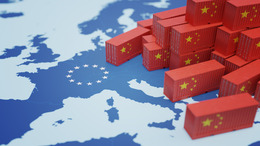The administration of President Park has been plunged into the worst crisis of its tenure after news emerged that the President had accepted advice from an old friend without office and political experience (but with links to a questionable cult) on a variety of sensitive political issues. Although South Korea is no stranger to corruption scandals, this one has infuriated most people. They think that democracy has been has been bypassed and wonder whether the country was being run by a “shadow president” with no political experience. Hundreds of thousands of angry South Koreans took to the streets in Seoul and elsewhere calling for President Park to resign.
Against this background, the Bertelsmann Stiftung organized a panel discussion on the developments in South Korea on 22 November together with the journal "Internationale Politik" (IP). The expert panel included Prof. Dr. Ra Jong-yil (former Ambassador of South Korea in the UK and Japan, and now professor of political science, Gachon University, Seongna), Bärbel Höhn MdB (Chairwoman of the Committee on the Environment, Nature Conservation and Nuclear Safety and Deputy Chairwoman German-Korean Parliamentary Group), Jun.-Prof. Dr. Hannes B. Mosler (Institute of Korean Studies Free University Berlin) and Bernhard Bartsch (Senior Expert, Bertelsmann Foundation). The discussion was moderated by Dr. Sylke Tempel, Editor-in-Chief of the journal "Internationale Politik" (IP).
Boom versus Crisis
In just a few decades, South Korea has emerged from bitter poverty into a modern industrialized nation and is seen as a role model for many countries in Asia. But at present, the economy and politics are in a deep crisis. What are the causes of these crises? Professor Ra, former ambassador of South Korea to Japan and the United Kingdom, pointed out that there had been several serious crises in the history of South Korea. They were often the driving force behind economic development. Boom and crises are, therefore, not at all contradictory but rather feeding into each other, according to him.
Structural obstacles
As one of South Korea's biggest problems, the experts identified the close links between politics and business. According to Hannes Mosler, junior professor at the Institute for Korean Studies at the Free University, these are the result of a long-lasting crisis that has existed since the constitutional change in favor of democratic reforms in 1987. In spite of the reforms carried out at theat time, the government failed to effectively stem political influence on the economy and to ensure the democratization of the economy. Paradoxically, Mosler noted, precisely these reforms had led to an even greater imbalance between the big corporations (Chaebols) and the political class. This had caused great indignation among the population and was a cause of the current wave of protests, Mosler concluded.
Another reason is the lack of inclusion of the young population in business and politics, argued Bärbel Höhn. Despite a good education, South Korean university graduates find hardly promising and well-paid jobs. In addition, the young people are longing for more and alternative forms of participation, the Deputy Chairwoman German-Korean Parliamentary Group summarized the impressions of her recent talks in South Korea.
South Korea's ability to innovate
South Korea's economic miracle is above all the success story of the Chaebols, i.e. large conglomerates like Samsung, Hyundai and LG. Their structures are the prototypes of successful Asian companies: steep hierarchies and a company culture characterized by strict discipline. Together, the Chaebols account for 70 percent of South Korea's economic power. Samsung alone accounts for 8 percent of the tax revenues and 13 percent of exports. The problems with the latest smartphone version, therefore, point to deeper structural problems. And they raise the question whether the South Korean development model has reached its limits? Are the structures characterized by the Chaebols blocking an innovation culture that requires flat hierarchies and independent thinking?
Bernhard Bartsch, Senior Expert of the Bertelsmann Foundation, saw the problem less as a result of a lack of the country's innovative capacity - in this respect, he believes South Korea to be good, even if the innovations are mainly the Chaebols and not by young start-ups. According to Bartsch, the amount of economic activity physically preserved in the form of jobs in South Korea is more problematic. He also emphasized that each country must go its own way of innovation. Germany could identify with South Korea's way, as both nations are heavily dependent on foreign trade. South Korea, however, also appears to have an even greater dependency on its regional partner China than is the case for Germany. South Korea's economic miracle is, therefore, closely linked to that of China.
All in all, the panelists agreed that South Korea needs far-reaching reforms in politics and the economy to get out of the current crises. However, the hopes of such reforms are already on the successor to President Park, who will be elected next year.
![[Translate to English:] Teilnehmer der Podiumsdiskussion diskutieren](/fileadmin/files/_processed_/3/c/csm_220202763Gangnam-Blues-Suedkorea-Veranstaltung_46e3cfbb6d.jpg)


![[Translate to English:] Container auf einem Schiff im Meer](/fileadmin/files/_processed_/f/7/csm_AdobeStock_82796029_KONZERN_ST-DA_Original_96069_02_38ff99c958.jpeg)



